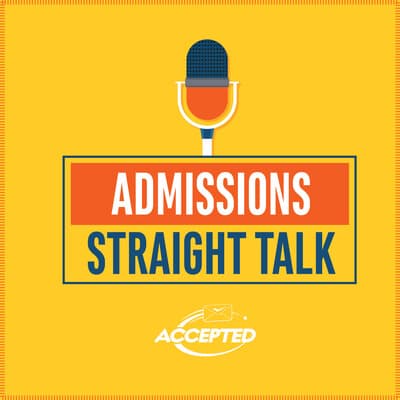Education
What unique challenges can this year's med school applicants expect to face, and how can they be overcome? [Show summary] Dr. Herman “Flash” Gordon, Accepted medical admissions consultant, walks med school applicants through applying during COVID-19, as well as disclosing thorny issues like academic discipline or a criminal record. How COVID-19 is impacting medical school admissions [Show notes] Dr. Gordon returns to Admissions Straight Talk to discuss applying during the pandemic, as well as applying with blemishes, like a criminal record or academic discipline. What qualifies him to guide you? He served as chair of a medical school admissions committee for four years. Dr. Gordon earned his bachelor's at Harvard and his PhD in developmental neuroscience from Caltech. He began teaching at the University of Arizona's medical school in Tucson in 1991 and has been doing so ever since. He also served as chair of the med school's admissions committee, and after leaving that position in 2014, he's been a very popular admissions consultant at Accepted. Who can better guide you in applying to med school, especially if you have some issues to deal with? (And everyone is dealing with the issue called COVID-19.) How did you get involved in med school admissions at the University of Arizona? [2:14] Like so many committee assignments, I was drafted. I was fine with it because I thought it was an opportunity to help choose the students that I'd be teaching. As I got into it, I really, really enjoyed it. It's such an important committee in med schools. It's definitely the most labor intensive, even probably more than PMT. It's also extremely rewarding, because you're changing people's lives by accepting them to med school, and it's such an intense effort. You're working with your colleagues who are also really dedicated to this task, and the outcome is great. You end up with this class that you really enjoy teaching, and you feel good about them becoming doctors. At University of Arizona, like at many schools, there are a number of students who serve on a committee as well. And that's very valuable, and I think they get the word out to fellow students, both at their own school and other schools, how dedicated everybody is to this effort. They also communicate how much effort it is, but it's also something I think everybody feels good about. I know that from talking with colleagues, who say "I had to serve on this or that committee," the one committee that everybody says was really worthwhile was the admissions committee. There's uncertainty about the kind of education future med students will get this fall. (Online? Offline? Blended? Clinical experience?) What's your take on how they should be responding to these different challenges? Let's take, first of all, the uncertainty surrounding the MCAT. [5:14] First, it is what it is. Med schools have to accept a new class of med students. And so they're going to roll with it. They know this, and what the MCAT is doing is allowing students to apply even if they don't have their MCAT score posted yet. Schools are sending out secondaries even without the MCAT. What they're saying is once you get the MCAT in, then we'll process your application, but you can be building it in the meanwhile and it'll just go through when it does. It won't be too late. Even people who are taking the MCAT through June and into early July, they're saying that they're expediting the reporting of the score. So it'll only be two weeks. So worst-case scenario, there is the end of July. That's still very much within the normal season for MCAT. So I wouldn't stress over that. I think the bigger stress I'm hearing from applicants is if they don't already have an MCAT score, and they take the test and it's not the score that they would have wanted, they don't have time to retake the test. And yet they've already spent all the money and put in the application.

